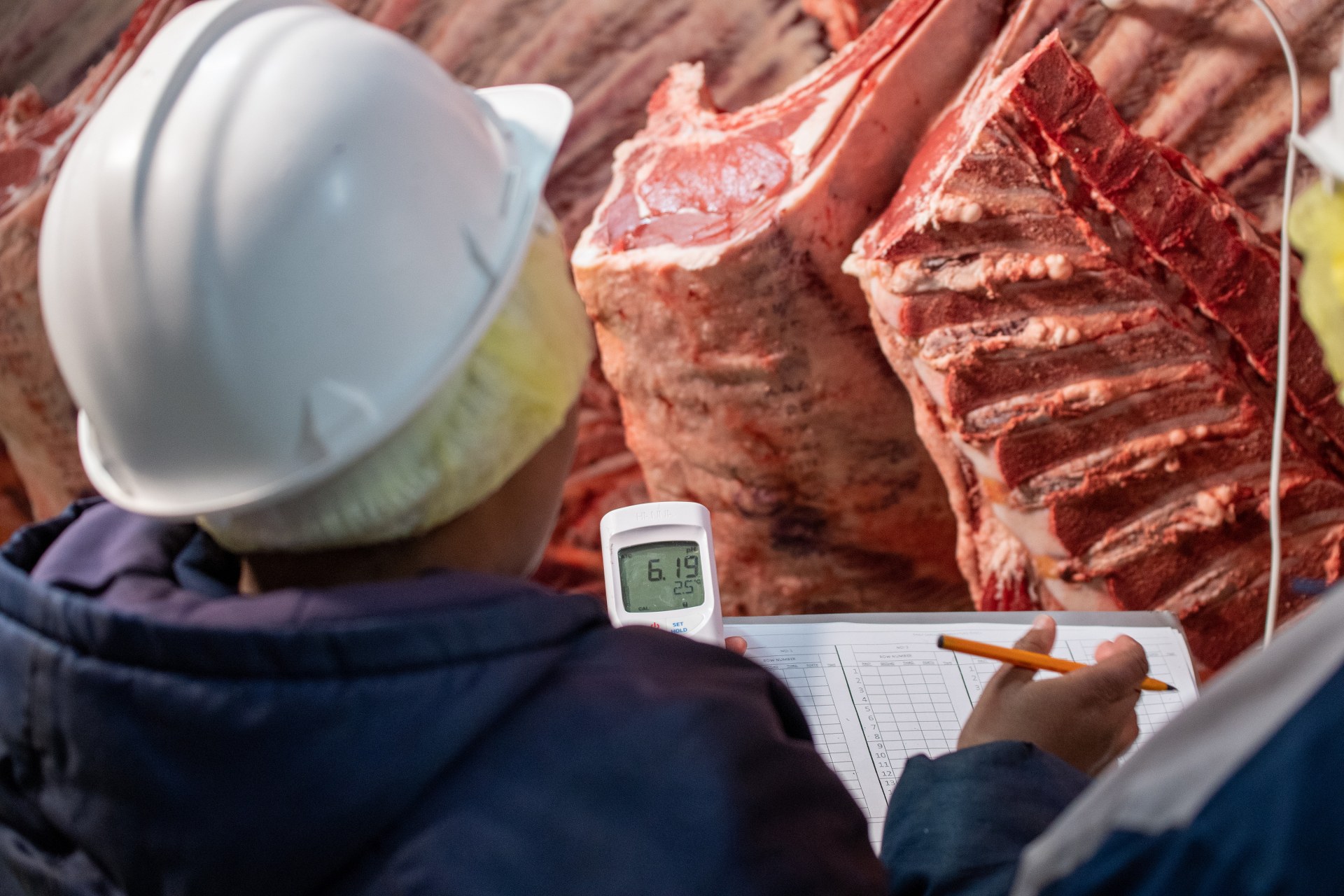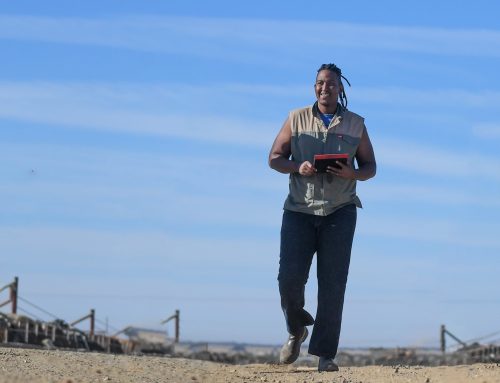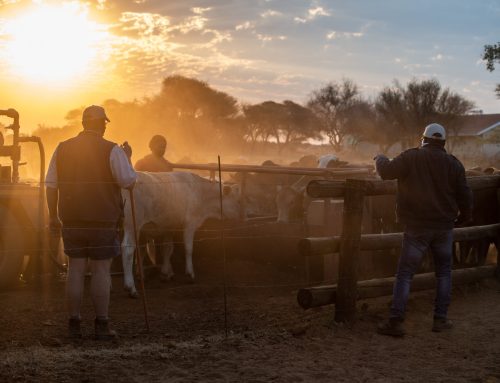Beefmaster Group, a leading specialist producer of beef products to South Africa and beyond based in Kimberley, is investing close on R3 million to develop and train its employees in 2022. This is a 35% increase on its 2021 training and skills development spend.
February 2022: Investing in the training and skills development of the workforce is critical for the success of agricultural operations for future generations.
This is the view of Cindy Nkgoeng, HR manager at Beefmaster Group, who says that upskilling the company’s workforce has been critical in ensuring it continues to be a leading beef producer and exporter in the country.
“Although training and development has always been a high priority, in the last two years we have seen a significant need to increase this investment, given the pivot in skills required during COVID-19,” Nkgoeng explains, “The training does not only extend to growing skills in the workplace, but also the social, intellectual, and emotional wellbeing of our staff.”
She says that the pandemic created challenges to create a classroom-type training and development environment in 2021.
“Despite the challenge in needing to observe COVID-19 protocols, we continued to provide formal learning and development opportunities during the year,” says Nkgoeng, adding that the company worked with training partners the Peritum Agri Institute, the Red Meats’ Abattoir Skills Training Institute, NC Training and Be Safe Training.
While training in manufacturing industries is often reserved for middle or entry-level management, Beefmaster Group focussed on initiatives across the varying skills pool in the business.
“To further raise the skill and attributes of leaders at our company, we identified and trained 34 managers across the Group, and of these, 24 trained to receive a National Certificate in Generic Management, Levels 4 and 5. The training focused on aspects such as communication, personal effectiveness, teamwork, organisational performance standards, financial calculations and customer effectiveness,” explains Nkgoeng.
She adds that 13 of Beefmaster Group’s younger leaders were identified to participate in the General Abattoir Processing Level 2 Learnership.
“Our work environment at our beef processing plant is mostly workstation-based, which creates a high level of speciality, but this can also lead to employees losing an understanding of the entire golden thread of the abattoir process,” explains Nkgoeng. “This is why it is important to us to focus on how the functions of the various departments – like communication, animal welfare, animal illnesses, health and safety and quality assurance – are interconnected, so as to improve employees’ ability to address daily workplace problems.”
To ensure that employees remain relevant and updated when it comes to the latest quality assurances, Beefmaster Group also provided legislative training to staff, including 17 counter balanced lift truck drivers, 15 tractor drivers, four front-end loader drivers and six boiler operators. In addition, 19 staff members were trained to work at heights and build scaffolding. 29 first aid officers were trained.
“Because food hygiene and safety are absolutely critical to deliver a quality product, we annually train feedlot and production staff on approximately 60 different modules to comply with the FSSC 22000 certification standards,” says Nkgoeng. “An additional 36 staff members were trained on abattoir hygiene awareness and health and safety in the food environment.”
She says that two unemployed community members from Kimberley and surrounds were selected to become electrical artisans and one to become a Fitter and Turner, which was jointly funded by Beefmaster and the AgriSeta.
“We are also committed to provide study assistance to staff who intend to further their knowledge and skills in their specific career fields. We provided financial assistance in 2021 for staff to study further in the fields of accounting, human resource management and animal production.”
In 2022, in addition to the training and skills development in 2021, the Group will offer bursary
opportunities to select individuals in Sustainable Agriculture, Animal Production and BSc Agriculture for undergraduate and post graduate students.
“We are also embarking on a project to improve the communication between our supervisors, team leaders and employees with 10 supervisors or team leaders participating in the project,” says Nkgoeng. She adds that this will ultimately lead to improved communication, productivity and customer satisfaction.
“Training is critical to improving our employees’ skills and building their competency. It has also proved key to bridging the gap that often exists between the classroom and on-the-job performance,” concludes Nkgoeng.






